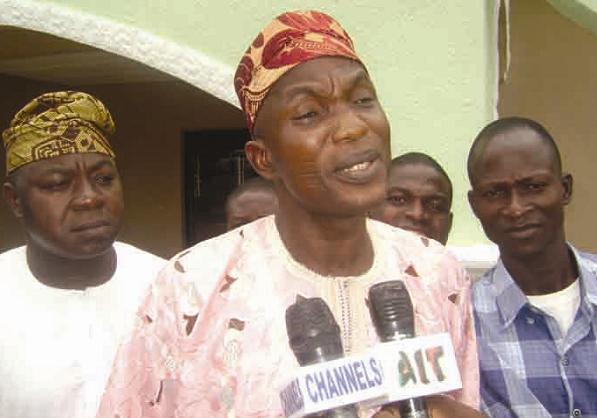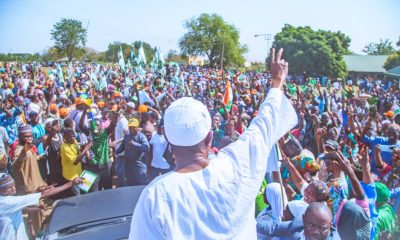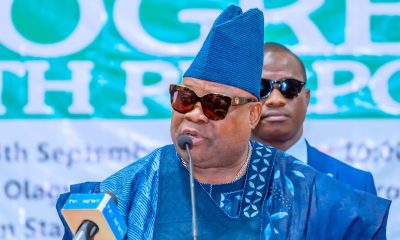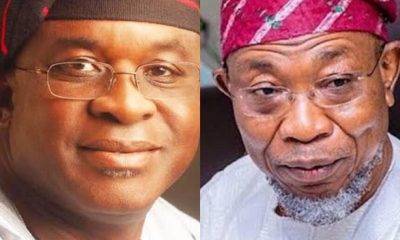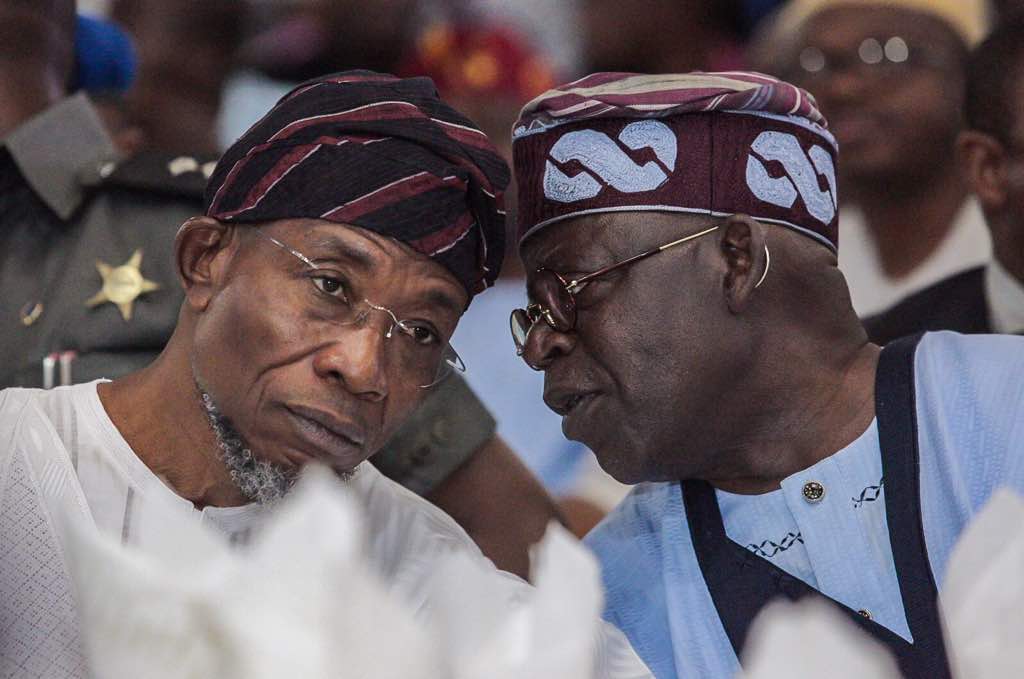News
How Aregbe Got His Ogbeni Title
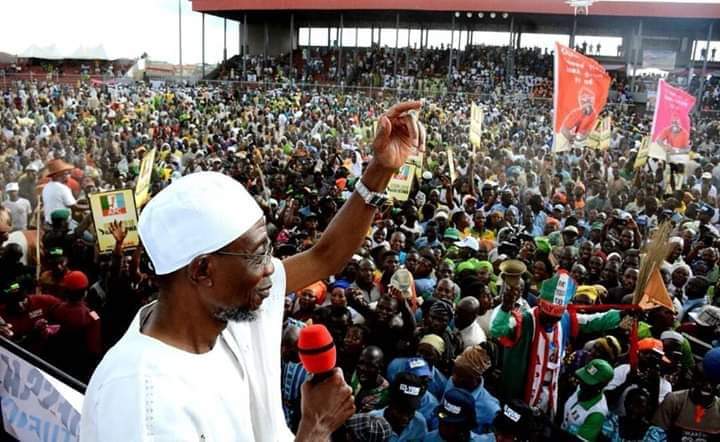
By Tunde Odesola
Most of life’s biggest accomplishments start as mere ideas. The mind of the journalist is a complex clockwork of curiosity and possibilities. He doesn’t need to be as strong as the bull. But he needs to be as courageous as the lion. To fight tyranny, murder, corruption, licentiousness, nepotism etc, he needs more than strength, he needs ferocious consistency.
The journalist cannot publish everything he knows, every time. If he does, fire may spring up in his newspaper or house or country. But as powerful as he is, the journalist, at times, is the freedom fighter restrained by the interviewee’s censorship seal called ‘Off the Record’ or the dangling Sword of Damocles called libel.
The Chairman of a Nigerian big bank once told me a story that exemplifies the power of the media. But he gagged me with the oath of secrecy called ‘Off the Record’.
Commenting on his court case with the Economic and Financial Crimes Commission, the bank CEO started, “In life, never look down on anyone.” He continued, “You know, when President Muhammadu Buhari assumed power in 2015, the anti-corruption war got on stream. There was fear everywhere. People were afraid because they weren’t sure if the anti-corruption war wasn’t going to be a vehicle for victimisation or not.
“There was this particular prosecutor of the EFCC, who was a terror to everybody in court. Whenever he was in court, he talked to people rudely. So, everybody tried to avoid him. When he talked, everybody shivered. He had an oppressive nickname he was secretly called. He would come to court and order people around, telling them where to sit, and where not to sit.
“On this particular day, the fearsome prosecutor, as usual, walked into court before the commencement of proceedings. Everyone was seated. He went to the press gallery and tried to change the sitting arrangement of journalists.
“One very short journalist who dressed simply just sprang up and thoroughly tongue-lashed the official, calling him unprintable names. It was as if we were watching a horror movie, everybody was rooted.
“The man couldn’t utter a word. After the court session, the journalist walked up to the prosecutor and continued his tirade of abuse, the man still couldn’t talk. It was as if he had gone deaf, dumb and blind. That was how we all got our freedom that day. Whenever he came to court, thereafter, he sat gently by the corner like a debtor.”
As a reporter of PUNCH newspapers at the Lagos State Governor’s Office, Alausa, someone walked into the Bagauda Kalto Press Centre in the secretariat, one evening, and said the then Commissioner for Works, Rauf Aregbesola, wanted to see me. I went with the official to the commissioner. That was in 2001 or 2002.
A no-holds-barred interview ensued. During the interview, Aregbesola said every black man on the face of the earth should contemplate his estate, and cry for, at least, four hours a day, begging God to change the course of his life from bad to good.
After the interview, I never spoke to or met Aregbesola again until our paths crossed around 2005 when he began to stake his claim to the 2007 governorship of Osun State, where I had been transferred to as the Osun State correspondent of PUNCH in 2003.
The deaf can understand the oratory of Aregbesola. On the crest of his populist appeal and media strategy, Aregbesola made inroads in Osun politics within a short time. The 2007 governorship election was fraught with killings and violence, resulting into over three-year legal tussle between Aregbesola who was the candidate of the Action Congress and the incumbent governor, Olagunsoye Oyinlola, of the Peoples Democratic Party.
After Aregbesola got victory at the Appeal Court, Ibadan, on November 26, 2010, he didn’t move into the Governor’s Office, Abere, until 2011. After his inauguration, he operated from the Oranmiyan House in Osogbo and slept in Ilesa, his hometown.
One day, an incident happened at the Oranmiyan House, which was a beehive of activities for party members and supporters. The incident buttresses the power of the media and also affirms the aphorism that cautions against looking down on anyone. The incident marked the rechristening of Aregbesola, whom many had come to address as ‘Engineer’ or ‘Alhaji’.
The new governor had just finished addressing the press. He was in his boisterous element. His media handlers suspected the governor could be tired after answering so many questions, thus they told journalists to round off their questions. But Aregbe, as he is popularly called, would have none of that. “I’m ready for them. Let them ask all their questions. Don’t gag them,” he told Messrs Sunday Akere, Gbenga Fayemiwo and Lani Baderinwa, who were calling the shots in his media team.
So, journalists were allowed to ask some more rounds of questions before the curtain was finally drawn on the session. Aregbe took his time to answer all the questions. But, before the closing remarks were made, I raised my hand and voiced my objection to the title of ‘Engineer’ that had been prefixed to the name of the governor and which had gained ground in the media.
I said, “It will sound trivial if everyone in the society is addressed by their professional qualifications and training. I shall refer to you as ‘Alhaji’ in my stories because it is a well accepted title across the country, but ‘Engineer’ will be too trivial. It’s funny that some people even go by the title, ‘Town Planner’ and ‘Geographer’ in Nigeria now. Herbalists, drivers and gatemen will soon begin to demand they be addressed according to their callings. It’s trivial. PUNCH as an organisation recognises only titles such as ‘Mr’, ‘Mrs,’ ‘Ms’, ‘Miss’, ‘Chief’, religious titles such as ‘Alhaji’, ‘Alhaja’, ‘Sheik’, ‘Imam’, ‘Pastor’, ‘Bishop’, ‘Evangelist’ and ‘Dr’ for medical doctors.
Smiling, the governor said, “What do you want to call me?”
I said, “I can call you ‘Alhaji’.”
Aregbesola: “No.”
“I can call you ‘Mr’,” I said.
As he was thinking about it, I added, “I can also call you ‘Ogbeni’.”
His face brightened up, “Yes, ‘Ogbeni’ will be good! Call me ‘Ogbeni’. I prefer ‘Ogbeni’.”
I filed my story later in the day – premising it on Aregbe’s preference for being called ‘Ogbeni’. The story came out the next day with a banner headline: “Call me Ogbeni – Aregbesola”
Thus, a big-eyed journalist, who wasn’t born when the governor was christened Abdulrauf Adesoji Aregbesola in 1957, rechristened Alhaja Sherifat’s husband in Osogbo in 2010, free of charge.
After the Jagaban of Borgu title held by the APC National Leader, Asiwaju Bola Tinubu, ‘Ogbeni’ appears to be the most popular title in the South-West political circle.
Beautiful things come in small packs. They also come as simple ideas. As Aregbesola celebrates his 63rd birthday, he should also be planning the celebration of the 10th anniversary of his Ogbeni title. Ewe oye amori o.
Happy birthday, Ogbeni.
-

 Entertainment5 days ago
Entertainment5 days agoNigerian Singer, Ifunanaya, Died After Snake Bite In Abuja
-

 News5 days ago
News5 days ago20-Year-Old College Student Found Dead With Body Parts Missing In Kogi
-

 News4 days ago
News4 days agoOver 100 Deaths Averted As Soldiers Evacuate Suspected Bomb From Church Premises In Abia
-
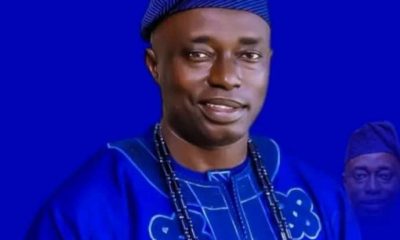
 News3 days ago
News3 days agoOsun Assembly Aspirant Pledges People-centred Representation For Boripe/Boluwaduro constituency





